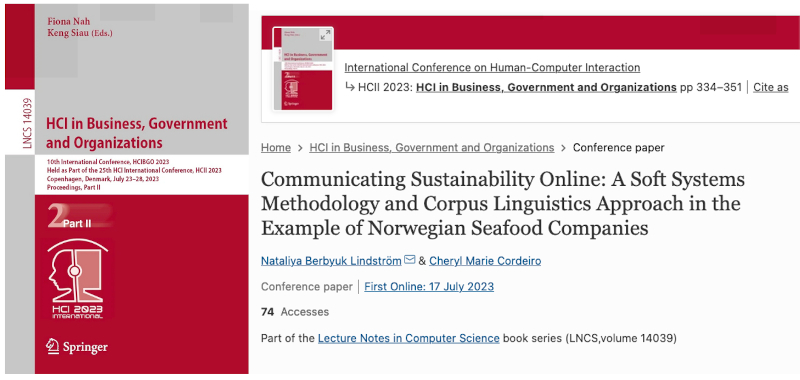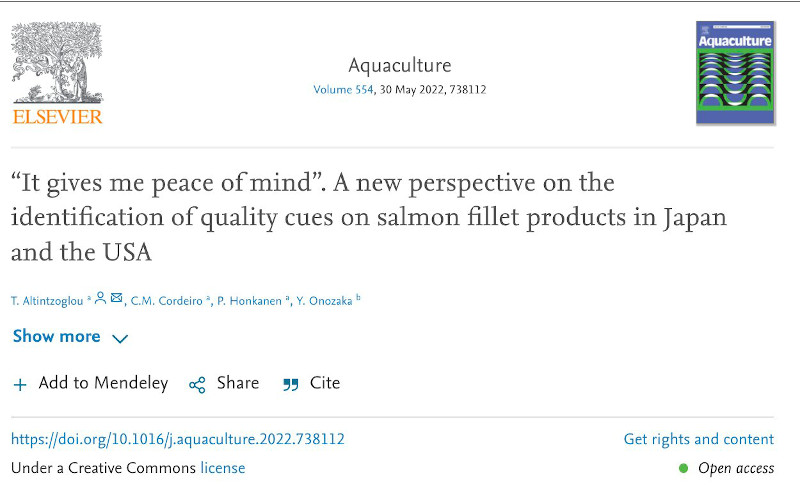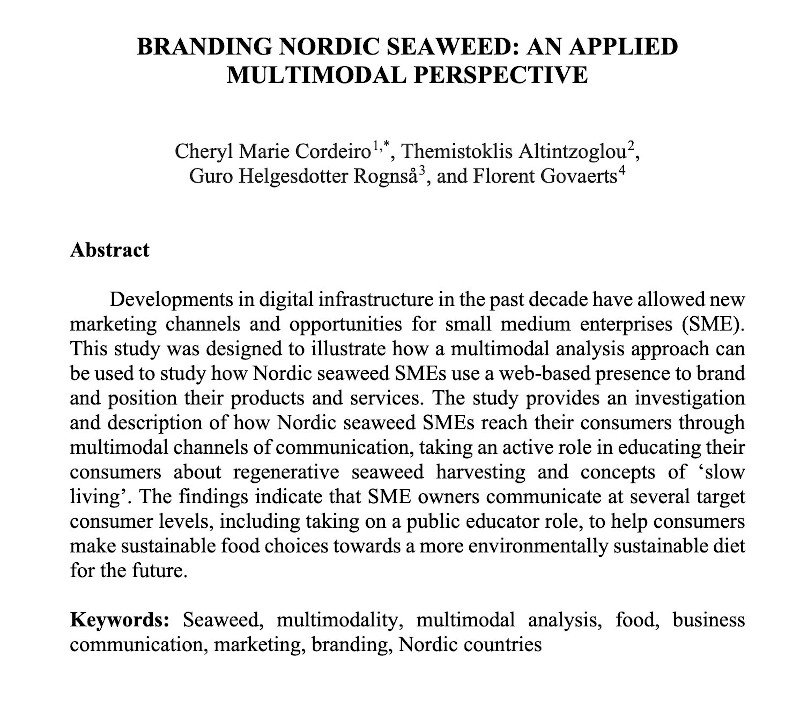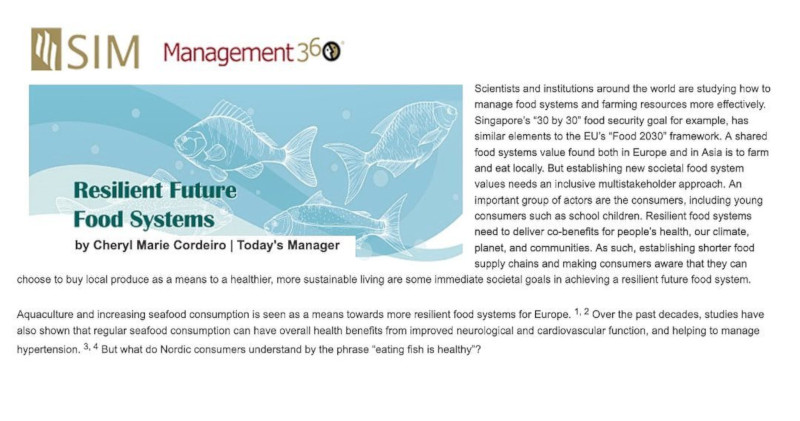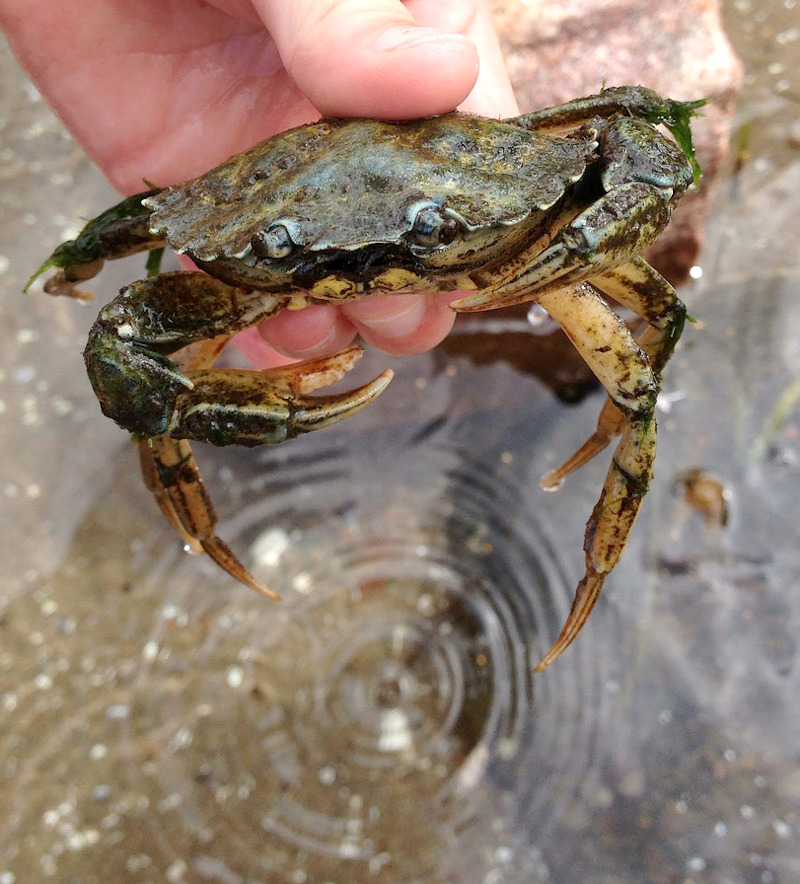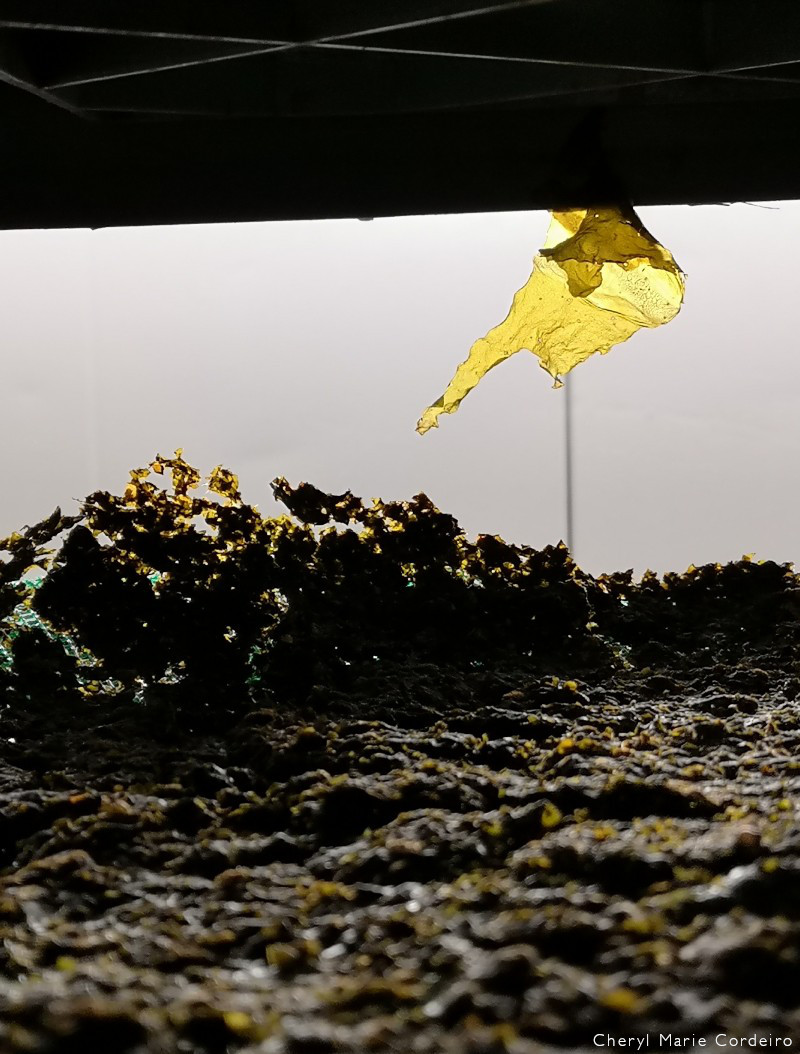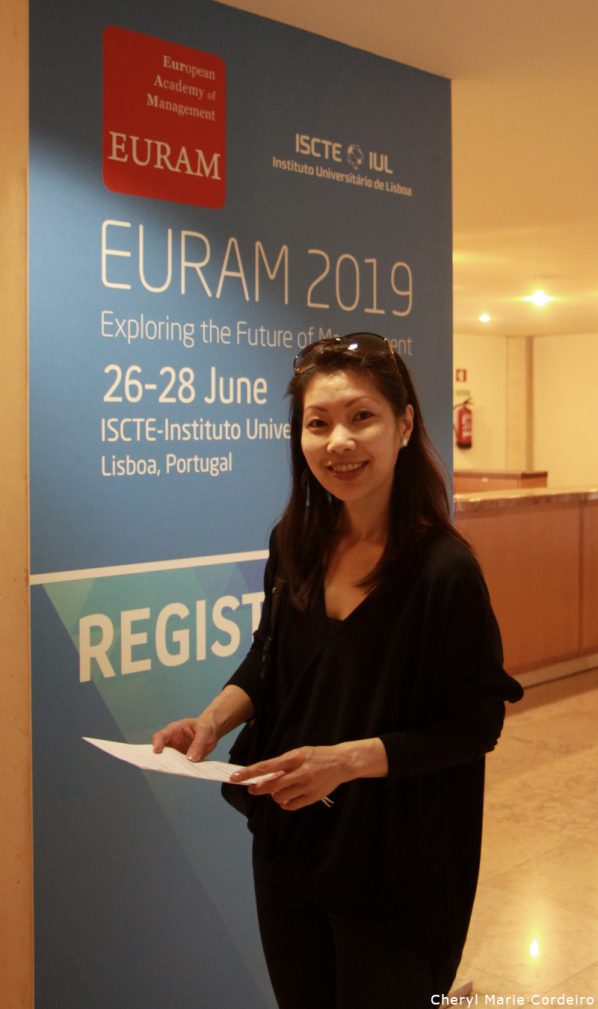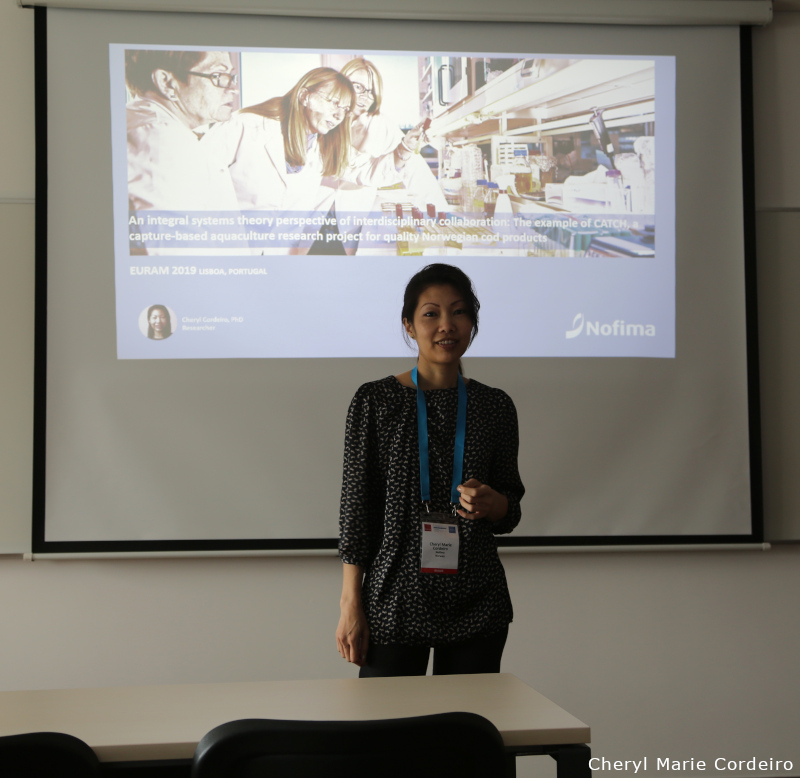Innovative Food Science and Emerging Technologies
https://www.journals.elsevier.com/innovative-food-science-and-emerging-technologies
Nordic Food Lab. Creative Methodology: http://nordicfoodlab.org/blog/2012/03/creative-methodology?rq=chef
Blog
http://nordicfoodlab.org/
Savour Magazine – Chef Interviews
https://www.savour-magazine.co.uk/category/chef-interviews/
Great British Chefs, https://www.greatbritishchefs.com/chefs
In pursuit of sea vegetable market. Maine USA.
Seaweed as complementary in narrative. IKEA salmon balls
Foraging seaweed. France
The seaweed project
CEVA france
http://www.in2lifesciences.eu/suppliers/ceva-center-study-and-promotion-algae
C-weed aquaculture France
NORWAY
https://www.niva.no/en/news/researcher-believes-in-kelp-farming
